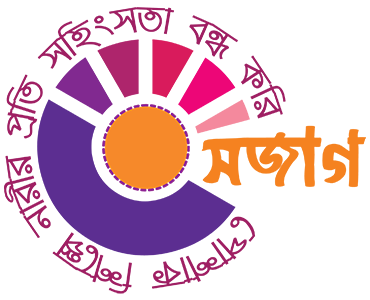Initiative to End Gender-Based Violence in the Garment Industry
Role of Coalition Members:
The coalition members bring in diverse sets of expertise with programming experience in private sector engagement, legal services, mobilisation against violence against women and advocacy on rights, justice, gender discrimination and violence against women, as well as workers’ rights. The coalition has designed a holistic program that reflects each of the organizations strengths to violence, in particular sexual harassment of women against garment workers in Bangladesh. Naripokkho brings in 34 years of experience as a women’s rights activist organisation which has identified and promoted women’s interests and rights in various areas such as sexual and reproductive health, legal and human rights, culture and environment and women’s organisation and leadership building. It has carried out advocacy and campaigning, research and mobilization, pilot projects as well as longterm interventions in the areas of health accountability and monitoring of government services and laws relating to violence against women.
Naripokkho: Lead organization, Naripokkho will be responsible for managing the grant and for meeting the financial and technical reporting requirements. It will coordinate the activities of the coalition partners and ensure NGO Affairs Bureau and Global Fund for Women requirements are met. Naripokkho will contribute towards activities that will increase capacity of women garment workers to realize their rights on genderbased violence (GBV) at workplace and support the coalition’s local and national level advocacy campaigns to promote changes in values and attitudes. It will ensure that a women’s rights perspective is adopted throughout the project
BLAST: BLAST will capitalize its vast network of legal aid unit offices and community law clinics in the target areas to provide legal aid and psychosocial support to victims of GBV working at selected factories and residing in these communities. BLAST will contribute to activities cutting across increased political will, capacity and resources among governments and businesses and making sure effective mechanisms are available in and around factories for victims and survivors.
Christian Aid: Christian Aid’s overall role will be to provide technical support in terms of gender and inclusion, monitoring and evaluation, knowledge management. CA will be responsible for end-line and baseline assessments, ensuring gender integration and monitoring and building linkages as well as activities to increase visibility of the nature and prevalence of GBV in garment industry supply chain
SNV Netherlands: SNV will play a key role of engaging with targeted garment factories leveraging existing industry experience and network, particularly with management structures to implement the activities in collaboration with factory Welfare Officers, HR and Floor Supervisors. SNV’s activities will contribute primarily to assessing factory-level policies and mechanism that need to be in place for safe reporting, prevention and increasing individuals’ access to services and information
BRAC: BRAC Human Rights and Legal Aid Services (HRLS) program will capitalize its vast network of legal aid clinics in the target areas to provide legal aid services support to victims of GBV working at selected factories and residing in these communities. BRAC HRLS specializes in legal redressal, promoting gender awareness, detect, handle and report human rights violations and will contribute to not only activities cutting across increased political will, capacity and resources among governments and businesses and making sure effective mechanisms are available but also public awareness to promote shift in values and attitude.
* BRAC dropped out from the coalition after six months of the project due to some unavoidable circumstances
